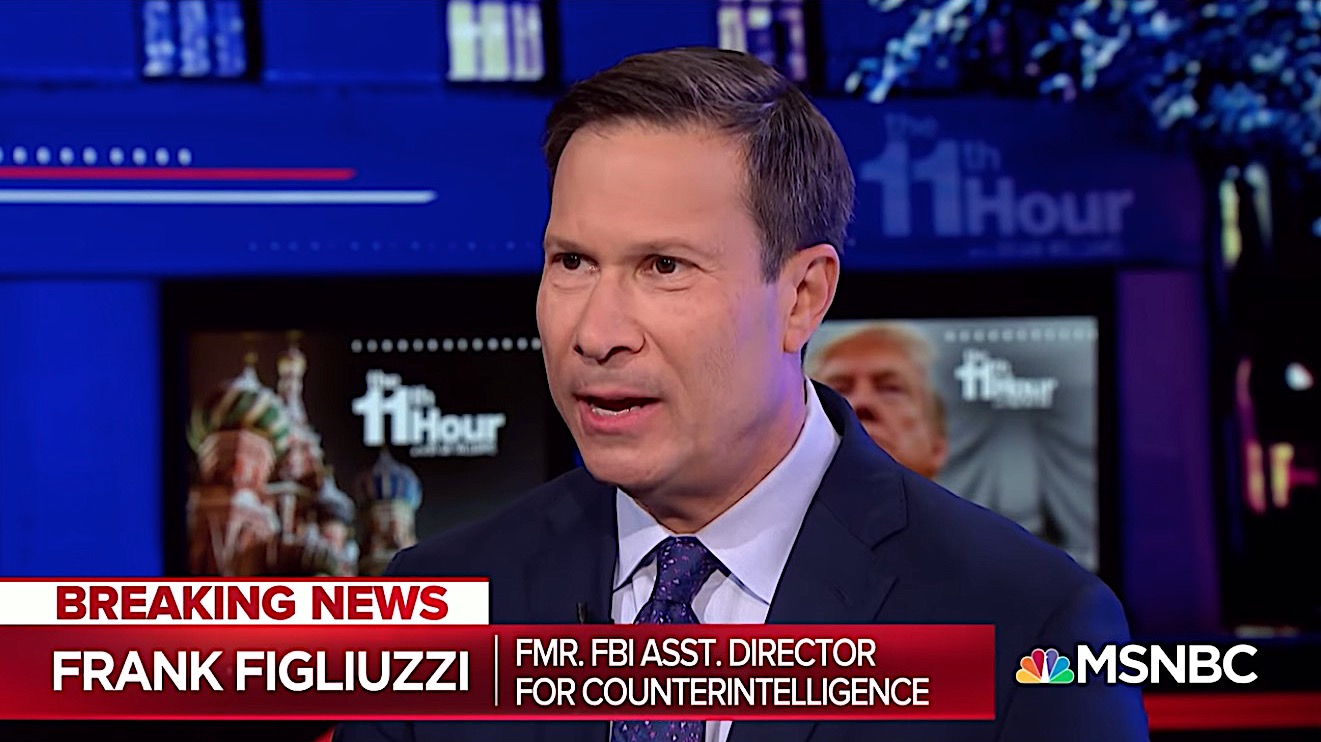Ex-top FBI official explains why the Justice Department's Russia criminal counter-investigation smells fishy


A free daily email with the biggest news stories of the day – and the best features from TheWeek.com
You are now subscribed
Your newsletter sign-up was successful
Several news organizations reported Thursday that U.S. Attorney John Durham is now overseeing a criminal investigation, not an administrative review, of the DOJ's own investigation into Russian election interference and any coordination with President Trump's campaign. Attorney General William Barr assigned the review to Durham in May, and its unclear why it has been upgraded to a criminal investigation or what potential crimes Durham is investigating.
The New York Times, which was first to report the criminal inquiry, notes that "federal investigators need only a 'reasonable indication' that a crime has been committed to open an investigation, a much lower standard than the probable cause required to obtain search warrants," though "a hunch is insufficient." Katie Bennet, one of the two Times reporters with the scoop, told Brian Williams on MSNBC Thursday night that Barr is unusually and "extremely involved" in the inquiry, and his main concern appears to be whether the FBI's 2016 investigation into Trump's campaign was "lawfully predicated."
Durham's team has already questioned more than two dozen former and current FBI and intelligence officials, and Frank Figliuzzi, a former FBI assistant director, told Williams he thinks "we're about to witness what I call a fabricated spectacle, a manufactured spectacle. For an unpleasant time during my FBI career, I led internal investigations, I was joined at the hip with the DOJ inspector general, I reconstructed investigative results. I know a little bit about how that works, and I know you have a decision to make: You can administratively compel employees to talk to you or you can decide to go the criminal route."
The Week
Escape your echo chamber. Get the facts behind the news, plus analysis from multiple perspectives.

Sign up for The Week's Free Newsletters
From our morning news briefing to a weekly Good News Newsletter, get the best of The Week delivered directly to your inbox.
From our morning news briefing to a weekly Good News Newsletter, get the best of The Week delivered directly to your inbox.
When you go the administrative route, employees can be fired for refusing to talk to you, so "you tend to get cooperation" and "you tend to get to the bottom of what you're getting at," Figliuzzi said. But when you go the criminal path, employees "lawyer up" and decline to cooperate. Now that Barr has gone this route, "you're going to see the White House and DOJ and certain media outlets come out and say 'Look at this: FBI agents and CIA employees are refusing to cooperate — they must be criminals!' That's the spectacle that's being manufactured here." Watch below. Peter Weber
A free daily email with the biggest news stories of the day – and the best features from TheWeek.com
Peter has worked as a news and culture writer and editor at The Week since the site's launch in 2008. He covers politics, world affairs, religion and cultural currents. His journalism career began as a copy editor at a financial newswire and has included editorial positions at The New York Times Magazine, Facts on File, and Oregon State University.
-
 Political cartoons for February 16
Political cartoons for February 16Cartoons Monday’s political cartoons include President's Day, a valentine from the Epstein files, and more
-
 Regent Hong Kong: a tranquil haven with a prime waterfront spot
Regent Hong Kong: a tranquil haven with a prime waterfront spotThe Week Recommends The trendy hotel recently underwent an extensive two-year revamp
-
 The problem with diagnosing profound autism
The problem with diagnosing profound autismThe Explainer Experts are reconsidering the idea of autism as a spectrum, which could impact diagnoses and policy making for the condition
-
 ‘One Battle After Another’ wins Critics Choice honors
‘One Battle After Another’ wins Critics Choice honorsSpeed Read Paul Thomas Anderson’s latest film, which stars Leonardo DiCaprio, won best picture at the 31st Critics Choice Awards
-
 Son arrested over killing of Rob and Michele Reiner
Son arrested over killing of Rob and Michele ReinerSpeed Read Nick, the 32-year-old son of Hollywood director Rob Reiner, has been booked for the murder of his parents
-
 Rob Reiner, wife dead in ‘apparent homicide’
Rob Reiner, wife dead in ‘apparent homicide’speed read The Reiners, found in their Los Angeles home, ‘had injuries consistent with being stabbed’
-
 Hungary’s Krasznahorkai wins Nobel for literature
Hungary’s Krasznahorkai wins Nobel for literatureSpeed Read László Krasznahorkai is the author of acclaimed novels like ‘The Melancholy of Resistance’ and ‘Satantango’
-
 Primatologist Jane Goodall dies at 91
Primatologist Jane Goodall dies at 91Speed Read She rose to fame following her groundbreaking field research with chimpanzees
-
 Florida erases rainbow crosswalk at Pulse nightclub
Florida erases rainbow crosswalk at Pulse nightclubSpeed Read The colorful crosswalk was outside the former LGBTQ nightclub where 49 people were killed in a 2016 shooting
-
 Trump says Smithsonian too focused on slavery's ills
Trump says Smithsonian too focused on slavery's illsSpeed Read The president would prefer the museum to highlight 'success,' 'brightness' and 'the future'
-
 Trump to host Kennedy Honors for Kiss, Stallone
Trump to host Kennedy Honors for Kiss, StalloneSpeed Read Actor Sylvester Stallone and the glam-rock band Kiss were among those named as this year's inductees
